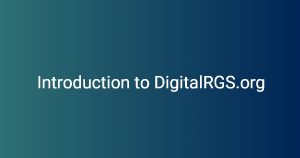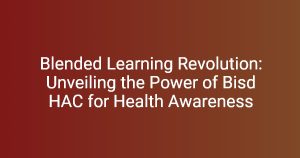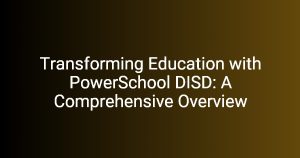The University of Metaphysical Sciences (UMS) is at the center of a notable legal dispute that has drawn attention from various stakeholders in the educational realm. Understanding this university of metaphysical sciences lawsuit update is crucial for students, faculty, alumni, and those interested in metaphysical studies. Recent developments in the case suggest significant consequences for the institution and its community, as well as broader implications for similar educational organizations.
Background of the University of Metaphysical Sciences
Overview of UMS
Founded in 1996, the University of Metaphysical Sciences aims to provide comprehensive education in metaphysical studies. Through a range of programs including degrees and certifications, UMS has influenced countless students aspiring to explore the metaphysical field. With an emphasis on spiritual education and personal growth, the university’s unique offerings have garnered a diverse student population. However, this success also brings scrutiny, especially as the institution navigates the current legal landscape.
Historical Context Leading to the Lawsuit
Over the years, UMS has faced various challenges that have shaped its current legal situation. Notably, changes in educational regulations and perceptions regarding distance learning programs have significantly impacted UMS. Previous legal disputes, although resolved, left shadows that led to heightened scrutiny. As laws surrounding metaphysical educational institutions evolve, the university’s operational practices have come under increased examination.
Details of the Lawsuit
Parties Involved
The lawsuit involves UMS as the primary defendant, facing claims from a group of former students and external advocates who allege that the university has misrepresented the value of its degrees and has engaged in fraudulent practices. The plaintiffs are seeking accountability for what they term misleading advertising regarding the efficacy of their degree programs. UMS is represented by legal counsel specialized in educational law and has provided formal responses through their legal team. This situation has also prompted involvement from regulatory bodies concerned with higher education standards.
Nature of the Allegations
The allegations against UMS are extensive and grave. Among the most serious claims are allegations of fraud and misrepresentation regarding the university’s degree programs. Plaintiffs assert that UMS has overstated the potential benefits and acceptance of its programs in professional fields. Other accusations include mismanagement and ethical concerns that question the operational integrity of the university. Legal arguments also draw from state education laws and regulations, raising the stakes for both the plaintiffs and the university.
Developments in the Case
Timeline of Key Events
– Date the lawsuit was filed: June 15, 2023
– Key court date: Initial hearing scheduled for August 2023
– Recent rulings: A judge has allowed certain allegations to proceed while dismissing others, providing a mixed outcome for both sides.
This timeline of key events highlights the ongoing nature of the case and the importance of staying informed.
Responses from UMS
In response to the lawsuit, UMS has issued several official statements, aiming to clarify its position. The university has emphasized its commitment to quality education and has pledged to address any issues that arise from the allegations. Initiatives being pursued include:
– Enhanced transparency regarding academic programs
– Consultation with external auditors to review operational practices
– Engagement in discussions to improve communications with current and prospective students
These measures signify UMS’s recognition of the serious nature of the claims and a determination to uphold its educational mission.
Impact of the Lawsuit
On Current Students and Alumni
The lawsuit has raised significant concerns among current students regarding the legitimacy of their educational programs and qualifications. With the uncertainty surrounding UMS, many students are worried about the perceived value of their degrees in the job market. Alumni, on the other hand, express anxiety about how potential outcomes of the lawsuit may affect their professional standing. This could lead to psychological stress and reduced enrollment, impacting the university’s future.
On Faculty and Staff
Faculty morale has been significantly affected by the lawsuit, as concerns about job security and the future of the programs offered have emerged. Faculty members are worried that the lawsuit’s implications may lead to staffing changes or program discontinuations, creating a challenging work environment. The outcomes will likely have ramifications for both teaching staff and administrative roles.
On the Wider Educational Community
The ongoing case could have broader implications for other institutions that offer metaphysical studies and distance learning programs. As regulators assess the situation, there is potential for new guidelines or oversight measures affecting similar educational models. Institutions may need to reevaluate their operational frameworks and transparency regarding program offerings to mitigate risks in light of heightened scrutiny.
Legal and Ethical Considerations
Potential Outcomes of the Lawsuit
The potential outcomes of the university of metaphysical sciences lawsuit update present several scenarios:
– Dismissal: If the court finds insufficient evidence, the case could be dismissed, allowing UMS to continue its operations with fewer disruptions.
– Settlement: A negotiated settlement may occur, leading to possible changes in practices but avoiding a lengthy trial.
– Trial: If the case proceeds to trial, the verdict could significantly impact UMS’s reputation, operational practices, and financial standing.
Each outcome carries unique implications for UMS, its current students, alumni, and the perception of metaphysical education.
Ethical Considerations
The case illuminates ethical considerations surrounding transparency in educational institutions. Universities have a profound obligation to ensure that the information provided to students regarding programs and qualifications is accurate and truthful. The responsibilities of universities extend beyond regulatory compliance to fostering trust and integrity among their stakeholders. This lawsuit serves as a reminder of the potential consequences that arise when institutions fail to uphold these core values.
Resources and Support for Affected Parties
Guidance for Current UMS Students
Current students seeking reassurance and clarity amid the legal turmoil should consider the following:
– Verify Academic Credentials: Students should review and understand the accreditation status of their programs to ensure they are well-informed.
– Explore Transfer Options: Those concerned about their degrees might research alternatives to transfer credits or enroll in different institutions offering accredited programs. This can help safeguard their educational investment.
Alumni Support
For alumni facing potential challenges due to the lawsuit, numerous resources and support networks are available, including:
– Alumni Groups: Joining networks that provide support and advocacy for alumni experiencing difficulties can create community solidarity and shared resources.
– Networking Opportunities: Engaging with professional groups in the metaphysical arena can offer guidance, support, and avenues for career advancement.
Legal Assistance
For students and alumni navigating their rights in the context of this lawsuit, accessing appropriate legal resources is paramount. Recommendations for legal resources include:
– Consulting Legal Professionals: Seeking advice from attorneys experienced in educational law can help individuals understand their rights and options.
– Understanding Student Rights: Resources such as the National Student Legal Defense Network provide valuable information on students’ rights in educational disputes.
Conclusion
As the situation surrounding the University of Metaphysical Sciences evolves, continuous updates on the university of metaphysical sciences lawsuit update are essential to all stakeholders involved. The ongoing developments raise critical questions about the integrity of metaphysical education and the responsibilities of academic institutions. Engaging with these issues proactively will allow students, faculty, and alumni to navigate the complexities of this lawsuit more effectively.
References
– [Legal Documents and Official Statements](#)
– [Scholarly Articles on Academic Malpractice](https://www.insidehighered.com/news/2022/10/05/universities-respond-academic-fraud)
– Contact information for university representatives or media queries regarding the lawsuit.
FAQ
What is the current status of the lawsuit against UMS?
The lawsuit is ongoing, with recent court rulings allowing some claims to proceed while dismissing others.
Who are the plaintiffs in the UMS lawsuit?
The plaintiffs are a group of former students alleging fraud and misrepresentation against the university.
What are the key allegations made against UMS?
Key allegations include fraud, misrepresentation of degree programs, and accusations of unethical practices.
How might the lawsuit affect current students?
Current students may experience concerns about the legitimacy of their degrees and potential impact on their future job prospects.
What resources are available for UMS students?
UMS students can access academic credential verification resources and support options for transferring credits.
How can alumni stay informed about the lawsuit’s developments?
Alumni can join support networks and engage with professional groups to stay updated and receive guidance.
What potential outcomes could arise from this lawsuit?
Potential outcomes include dismissal, settlement, or going to trial, each carrying distinct implications for UMS and its stakeholders.
What are some ethical considerations involved in this case?
Ethical considerations include the need for transparency and integrity in educational practices and the responsibilities of institutions to their students.
What legal assistance options are available for those affected?
Individuals affected by the lawsuit can consult with legal professionals specializing in educational law and utilize resources that outline student rights.
How has the lawsuit impacted faculty morale at UMS?
Faculty morale has been significantly affected, with concerns about job security and the potential for program changes leading to a challenging work environment.
How might regulations for distance learning programs change due to this case?
The outcome of this lawsuit could prompt changes in regulation or oversight measures for distance learning programs and institutions offering similar educational paths, impacting the broader educational landscape.








